Current IssueFrom the Editors
Since Donald Trump has taken up residence in the White House, the country has faced a series of political controversies, a barrage of right-wing legislative and regulatory initiatives, a growing far-right movement, but also a broadening resistance from various sectors of society. Trump: Political Crisis, Right-wing Policies, and the Resistance
Donald Trump’s first six months as president of the United States has been bad in so many ways that it is hard to know where to begin. One Hundred Years of the Russian Revolution: A Retrospective View
At a distance of one hundred years, the Russian Revolution, which truly shook the world, deserves to be remembered once more in terms of its emancipatory significance and its downfall and betrayal. This revolution would not have happened had it not been for the crucial role played by the Bolshevik party. It is true that the profound crisis affecting the Russian society, worsened by the country’s disastrous participation in World War I, could have sooner or later led to a massive upheaval. But it is questionable that a socialist revolution would have taken place without the organizational skills of the Bolshevik party and the political, strategic, and tactical genius of V.I. Lenin. The Russian Revolution, Soviets, and Socialist DemocracyAn Interview with Suzi Weissman
“Revolutions are the mad inspiration of history” Leon Trotsky, My Life
The Tragic Fate of Workers’ Russia
[This is the second of three articles commemorating the Russian Revolution of 1917 and analyzing its fate under Stalin. The first part, “Glorious Harbinger of a New Society: the Bolshevik Revolution,” was published in the previous issue of New Politics, number 62, winter 2017. The text below is slightly expanded from what appeared in the print issue.] Soon after the Treaty of Brest-Litovsk was signed on March 3, 1918, the Soviet republic was under siege. Various anti-Bolshevik forces, some supported by the Allies or the Central Powers, were gathering. If these forces succeeded in reversing the October Revolution, what would be the result? Antonio Gramsci: From War to Revolution
Eighty years after his death, Antonio Gramsci is among the most influential Marxist intellectuals across the board. By the end of World War II, liberal intellectuals had already found in him “a Marxist you can take home to Mother.” The tone was set by Benedetto Croce, who allegedly gushed in 1947, upon reading Gramsci’s Prison Notebooks, “He’s one of us!”1 It reached the point that the Sardinian activist can be presented today as no less than the guarantor of “Italian Democracy.”2 Looking Back at the June 1967 Middle East War
JUNE 2017 IS THE FIFTIETH ANNIVERSARY of the 1967 Middle East War—the June War or, as Israelis like to call it, the Six Day War. Why should we care today about this historical event? For one, the war—with its resulting conquests, refugees, and shifting alliances—helped define the modern Middle East and make it one of the world’s great flash points for further conflict. But there are other reasons as well why this war bears re-examination. Self-organization in the 2016 Palestinian Teachers Strike
From February 14 to March 13, 2016, 35,000 Palestinian teachers in the West Bank government-run school system were on strike. The teachers’ goal was to hold the Palestinian Authority to the terms of a 2013 agreement between the General Union of Palestinian Teachers (GUPT) and the Ministry of Education, an agreement the Palestinian Authority had reneged on for three years running. (Ma’an News, Feb. 16, 2016) Socialism from Below? Bolivia in an Age of Extractivism
Bolivia received global attention for its anti-imperialist and anti-capitalist social movements in the twenty-first century. Best known perhaps were the Water Wars, against water privatization, in 2000 and the Gas Wars, demanding nationalization of the gas industry, in 2003. These rebellions entailed a radical rethinking of natural resource use and distribution. Puerto Rico and PROMESA: Reaffirming Colonialism
“Puerto Rico will be in a death spiral!” With this dramatic announcement, Governor Alejandro García Padilla transformed the island nation’s long-simmering debt overhang problem into an international spectacle. A financial mess that seemingly concerned only institutional investors, municipal bondholders, and some hedge fund managers exploded into a full-blown debt crisis with disquieting parallels to the situation in Greece. Remembering Dependency TheoryA Marxist-Humanist Review
This article aims to show that dependency theory underlines vividly the problem of examining the logic of capital independent of Marx’s concept of value. It is impossible to completely understand the essence of Marx’s critique of political economy, especially a vision of an alternative to capitalism, without grasping value as distinct from exchange value. The distinction is of vital importance, since uprooting relations of exchange cannot itself eliminate the defining principle of capitalism: abstract labor, production for the sake of value. U.S. Workers in the Late Neoliberal EraThe Pressures, the Changes, the Potential
Capitalism in the United States and across the world has gone through a series of mind-bending crises, spatial “fixes,” and continuous restructurings that have disoriented organized labor in most of the developed economies since the beginning of the neoliberal era in the late 1970s and early 1980s. The Left, the Right, and Globalization
Don’t be tricked into thinking that what is going on is a debate about “free trade”—the unhindered exchange of goods—because it is not. Agrarian Reform and the Radicalization of Food Politics
If you’ve seen any of the documentaries that are critical of U.S. agriculture, then you’re most likely aware of the increase in some innovative and somewhat unconventional experiments in growing food—bee hives and gardens on hospital roof tops, abandoned warehouses turned into greenhouses, farms that double as a local community’s source of fresh produce and the pizzeria. The Jewish Role in the Industrial Workers of the World
The most radical and militant union in American history was the Industrial Workers of the World (IWW), colloquially known as the Wobblies. Its active years were from 1905 to 1919, or at best until mid-1920 when it led its last major struggles—a maritime workers strike in California and a miners strike in Colorado. Fierce government repression during and after World War I, along with vigilante violence and internal divisions, dealt the IWW blows from which it never recovered. The mass industrial union movement during the New Deal passed it by. Yet, the IWW continues to exist on a small scale to this day. Harvey, Klein, Smith, Foster: Militant Particularism and Ecosocialism
In “Militant Particularism and Global Ambition: The Conceptual Politics of Place, Space, and Environment in the Work of Raymond Williams” (1995), David Harvey discusses the challenges presented by moving from place out across time. In the midst of his involvement in a participatory research project within a high-stakes local struggle against the closure of an automotive plant, he was accused of being a “free-floating Marxist intellectual,” an outsider, and he was given the “evil eye” and asked to explain “where his loyalties lay.” (71) This is in an environment where people were losing jobs, and families and communities were being destroyed. Art Spiegelman on Si Lewen
Reading, actually looking obsessively at the pages of, this volume and non-volume inevitably brings to mind an unpublished, uncompleted 1967 essay by Herbert Marcuse, “Lyric Poetry After Auschwitz,” translated and published after his death. Here Marcuse says, in part, The Real Tragedy of Che Guevara's LIfe
In Latin America we have a saying, “Poner el dedo en la llaga,” a phrase that means to call attention to a delicate or worrisome point. However, llaga means literally an open sore or ulcer. I believe that Cuban socialist and scholar Samuel Farber puts his finger indeed on a significant sore point in revolutionary history with his latest book, The Politics of Che Guevara: Theory and Practice. While recognizing the undeniable determination, egalitarianism, and selflessness of Che Guevara in his fight against imperialism, Farber meticulously exposes the contradictions of Che’s thought and the political, economic, and social detours that Guevara took in his honest quest for a better world. A Complete Story of AtticaAt long last
Heather Ann Thompson has written a magnificent history of the Attica Prison uprising, the deadliest prison rebellion in U.S. history. It is a long book, nearly 600 pages of text and another 150 of notes and apparatus. It’s a timely book: Attica casts its uneasy shadow over our halting steps to unwind the social catastrophe that is mass incarceration. Memories of Struggle and Despair in the Philippines
In the foreword to Subversive Lives: A Family Memoir of the Marcos Years, the authors write it “was not intended to be about communists and communism”—still the book provides remarkable insights into the Philippine communist movement. The book is a collective memoir of the surviving Quimpo family, relating their lives during the years of the Marcos dictatorship from the early seventies to the mid-eighties. With many of the siblings involved in the revolutionary movement, their memories furnish stories of underground organizing, imprisonment and torture, repression and resistance. Marvin Mandell, Who Fought for Equality, for Life, and for Art
In 1996, at the height of the culture wars, Marvin Mandell joined the battle, writing a long essay, “Canon on the Left,” in which he argued that the left should not allow conservatives to claim the literary canon. While he of course supported the expansion of the canon to include all of the writers of color, as well as the women and all of the others who had been neglected and excluded, he refused to allow the right to claim the great tradition of European literature. He concluded the essay with these words: |
Blogs & On-Line FeaturesBolshevism, Real and Imagined: A Reply to Mitchell Cohen
The greatest flaw of Mitchell Cohen’s “What Lenin’s Critics Got Right” in the most recent Dissent is that it repeats what Lars T. Lih, independent researcher and author of Lenin Rediscovered:‘What Is To Be Done’ In Context (Haymarket, 2008) and a biography of Lenin (Reaktion Books, 2011), calls the “standard textbook interpretation” of Lenin’s thought and, by extension, Bolshevism as a movement.
US vs Free Syrian Army vs Jabhat al-Nusra (and ISIS)History of a hidden three-way conflict
Introduction
This article deals with a specific aspect of the US role in the Syrian conflict: its drive to co-opt the Free Syrian Army (FSA) into a proxy force to fight only the jihadist forces of Jabhat al-Nusra (now Jabhat Fatah al-Sham, or JFS) and the Islamic State (ISIS/Daesh), while giving up their fight against the Assad regime. Marx’s Capital After 150 Years: Revolutionary Reflections

What does it mean to celebrate and concretize for today Marx’s greatest work, Capital, Vol. I? Such a discussion is terribly important at this juncture, when we are in a new situation where even some sectors of the right have started to attack neoliberalism. The Brexit vote in the UK, the large vote for Le Pen in France despite her eventual defeat by a neoliberal candidate, and above all, the Trump campaign have placed on the agenda a new form of right-wing populism with neofascist overtones that breaks with some key features of neoliberalism, such as free trade pacts, somewhat more open borders, and “humanitarian” intervention. At the same time, Trump as president has put forth an incoherent agenda that contains major continuities with neoliberal austerity and old-style militarism, above all in the attempt to gut Obamacare. The Campus Antifascist Network’s United Front Against Fascism
Academic Freedom Goes to Court
Why should we care about the Consumer Financial Protection Bureau?
In the early hours of November 27th, employees at the Consumer Financial Protection Bureau (CFPB) woke up to a world of contested allegiances. Advocated by Senator Elizabeth Warren and set up by the Dodd-Frank Wall Street Reform and Consumer Protection Act, CFPB was created in 2011 as an independent Federal agency tasked with protecting consumers in the financial sector. Since it was this sector’s predatory exploitation of low-income racialized communities that triggered the subprime mortgage crisis, this agency was intended to regulate finance across consumer services like mortgages, student loans, and credit cards. As such, the founding of the agency received large support from consumer groups and their Democratic allies in the Federal administration. Republicans, for their part, dutifully (and unsurprisingly) rendered the agency as another burden on the “free” market.[i] Such conflicts are hardly news and government employees are in this sense always in the precarious position that their jobs might be discarded with every new administration. Rarely, however, do these conflicts take the absurd character we could witness the following few days. Jones Victory in Alabama's Senate Race: Pause in that Sigh of ReliefAnd while you're doing that, subscribe and donate to New Politics!
Though we wouldn’t know it from mainstream media coverage, the sigh of relief many progressives will breathe at Moore’s defeat should be tempered with the knowledge that Jones will likely not be a reliable ally on issues on which the Democrats should all be expected to fight the GOP and Trump. An exit poll of voter opinions showed over 40% of Alabama voters, Democrats and Republicans alike, gave an unfavorable rating to both parties.
Standing Up for Palestine: BDS More than Ever!
IF THERE WAS any “Israel-Palestine peace process,” Donald Trump torched it with his December 6 announcement recognizing Jerusalem as the capital of Israel and the transfer of the U.S. embassy to that bitterly contested city. But there are two more important underlying realities. A Greek Tragedy Foretold
Adults in the Room: My Battle with the European and American Deep Establishment And The Weak Suffer What They Must? Along with French economist Thomas Piketty, former Greek finance minister Yanis Varoufakis is making economics sexy again. Journalists enjoyed snapping photos of Varoufakis, clad in a black leather coat, commuting to the finance ministry’s offices on his Yamaha motorcycle. But his short tenure in the Greek government was marked by clashes with the country’s creditors and ultimately with the leadership of Syriza, the left-wing party that came to power in Greece in early 2015. Punitive Neoliberalism in Puerto Rico
John E. Chiaradia, 1926 – 2017: Political Activist
John E. Chiaradia was a longtime reader and sometime contributor to New Politics. How does one come to political activism? Are we influenced by the times, by our personal experiences, by some innate quality within us, or are each of these just the necessary ingredients of activism? John (Giovanni) Emilio Chiaradia left Italy as a child, a political refugee from mid-20th-century Italian fascism. His family escaped the turmoil engulfing their country for the welcoming haven of the United States, landing in New York City and eventually settling in central California. There they were once again confronted by nationalist politics and uprooted from their home. They were compelled to leave California following the bombing of Pearl Harbor as John’s mother, Antoinette, was not yet a naturalized citizen. In the wake of the war, the US government deemed all non-naturalized people from Axis countries, and even citizens in the case of Japanese Americans, to be potential threats to national security. They were commanded to vacate a 100-mile exclusion zone from the west coast. The family was forced to leave what few possessions they had and return to the Bronx. Is Change Possible in Mexico?
Mexicans, worse off than at any time in the last 100 years, are asking themselves as the July 2018 elections approach: Can Mexico change? Can an election change Mexico? Mexico is a disaster. It has become increasingly violent, the economy grows too slowly to absorb the ever-expanding workforce, and wages are below those of China, though costs are more like those in the United States.
Business warms to Corbyn: getting our bearings in a new political world
It is now seven months since Theresa May called a general election with the aim of increasing her majority and the Daily Mail published a front page headlined “Crush the Saboteurs”. The spring of this year, as regards parliamentary politics, seems like another world. The House Resolution on Yemen is a Stinker
Congress was given a chance to stand up for basic humanity and the Constitution, but instead chose to lay an egg, a rotten one at that. It rejected a chance to use the War Powers Act to halt U.S. collaboration with Saudi Arabia’s ruthless war and siege tactics in Yemen. Instead it passed a resolution that could have been written by the Saudi kingdom’s lawyers and publicists. Lone-Wolf Terrorism: A Symptom of the Deepening Social Crisis
On November 5, 2017, 26-year-old Devin Kelley killed 26 people and injured 20 others attending Sunday church services at the First Baptist Church in Sutherland Springs, TX. This small, unincorporated community is 30 miles southeast of San Antonio and, in 2000, its population was but 362 people. Sadly, Kelley is the latest, but not the last lone-wolf terrorist to engage in the mass killing of Americans. |




.jpg)

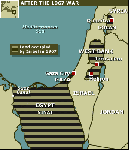













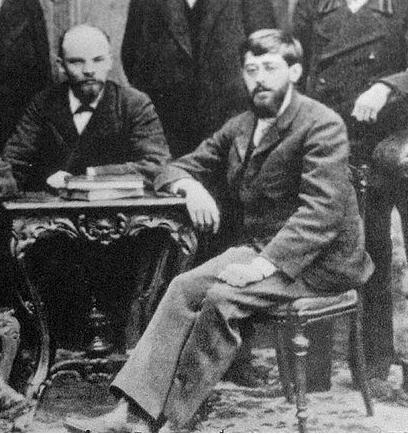

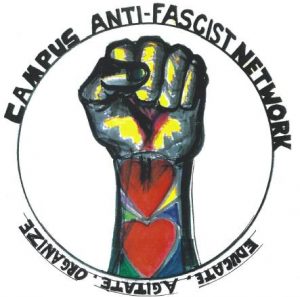 Since Donald Trump’s election in November, 2016, more than 150 university campuses in North America have been postered or fliered by white supremacist, neo-Nazi, or white nationalist groups. Most common have been flierings by
Since Donald Trump’s election in November, 2016, more than 150 university campuses in North America have been postered or fliered by white supremacist, neo-Nazi, or white nationalist groups. Most common have been flierings by  Peaceful protest carries no guarantee against violence. In mid-May, Recep Tayyip Erdoğan, the president of Turkey, came to the United States to meet with Donald Trump, who had made haste to congratulate him on winning a referendum in April. Its provisions would
Peaceful protest carries no guarantee against violence. In mid-May, Recep Tayyip Erdoğan, the president of Turkey, came to the United States to meet with Donald Trump, who had made haste to congratulate him on winning a referendum in April. Its provisions would 



 Isolating the situation of Puerto Rico is one of the mechanisms used to seek acceptance of the austerity policies that are now being imposed on the Island.
Isolating the situation of Puerto Rico is one of the mechanisms used to seek acceptance of the austerity policies that are now being imposed on the Island.

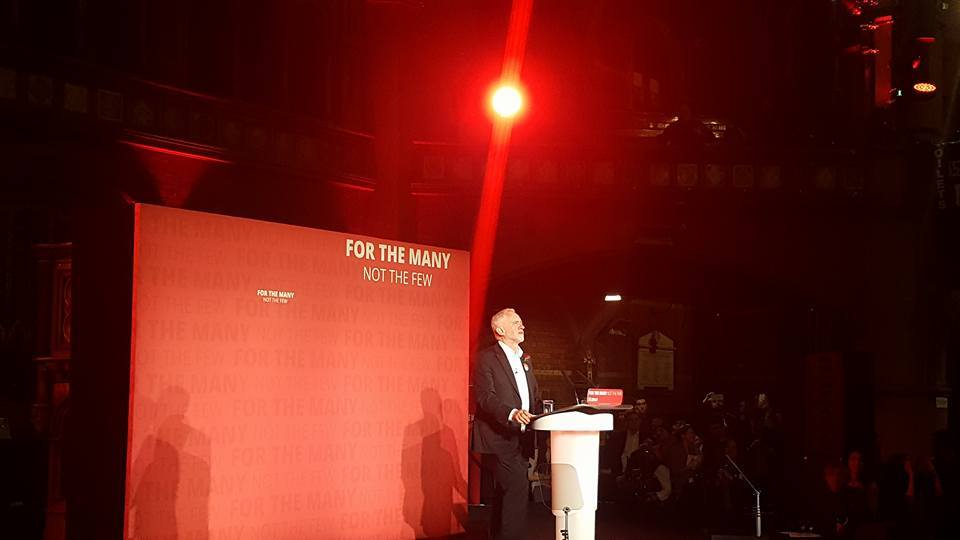



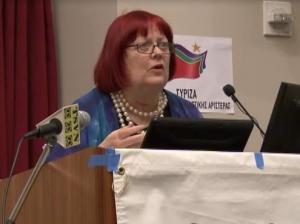 oanne Landy, long-time prominent member of the New Politics editorial board, co-founder and co-director of the Campaign for Peace & Democracy, former executive director of the New York chapter of Physicians for a National Health Program, and a leading voice for a democratic foreign policy and socialism from below, has died. All the movements she enriched and inspired with her wisdom, her sharp political analysis, and her humane values for more than half a century are in her debt and have suffered a great loss. We mourn her passing.
oanne Landy, long-time prominent member of the New Politics editorial board, co-founder and co-director of the Campaign for Peace & Democracy, former executive director of the New York chapter of Physicians for a National Health Program, and a leading voice for a democratic foreign policy and socialism from below, has died. All the movements she enriched and inspired with her wisdom, her sharp political analysis, and her humane values for more than half a century are in her debt and have suffered a great loss. We mourn her passing.



